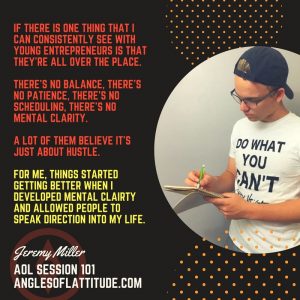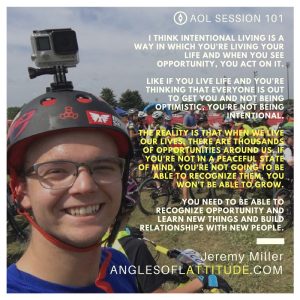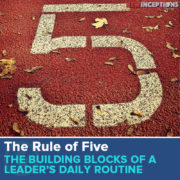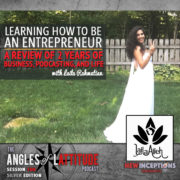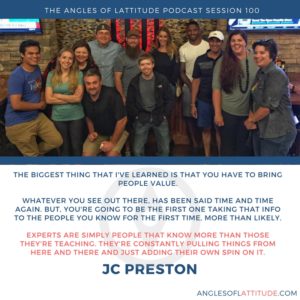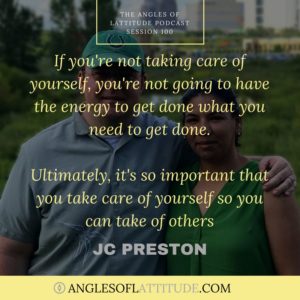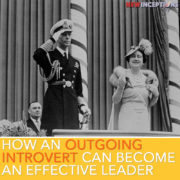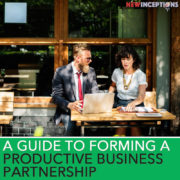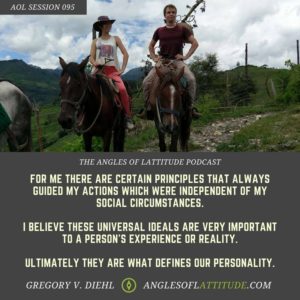5 Realizations About Getting Older (Which Might Seem Bad at First!)
As I’m sitting here watching the Great American Eclipse of 2017, it hit me. This isn’t the first one I remember seeing. In fact, there’s been a few others. But you wouldn’t know that based on all the commotion about this one.
I remember in junior high there was one as well. Funny enough, I don’t recall anyone talking about it! It just seemed to have happened.
I specifically remember seeing it as I was going to lunch period. And, what’s funny, is that I ended up pointing it out to my friends in a puddle. (I guess a little eye damage is better than a lot!)
Come to find out, there were several around that time frame – even if they were partial eclipses. Not exactly sure which year it was, unfortunately. 🙁
But, it’s interesting. That was around 20 years ago. 20 YEARS. At that time I thought anyone that was 20 years old was not exactly old… but at least almost consider an adult!
But now I’m 35, quickly approaching 36. That realization (as well as a Adults React video I watched yesterday) had me thinking:
What are some things I’ve learned as I’ve gotten older?
More specifically: What are some things that I’ve learned that at one point might have been considered a bad thing?
Here’s that video if you need some help feeling old:
Stop Feeling Immortal
So, the last day of 2010, my mom suddenly passed. Needless to say, life suddenly changed. I still remember that morning pretty vividly. Just coming to terms with it all.
Up to that point, I had been to many funerals with my mom. I never really thought too much about death. Only the rare instance that she had prepped me for when it happened to her. She mentioned I was to do a list of things. One of which was cremating her because she didn’t want bugs in her body! Kind of odd, right? I guess it just grossed her out too much, apparently!
Anyway, it’s been nearly 7 years since then. And that time, I feel, has totally flown by quicker than all the time before it. Partially because I’ve met and married Maria during that time. But also because I have an exact reference point in my mind.
With that reference point, I’ve realized that knowing that my time is limited is a GREAT motivator. In a odd way, I feel that her passing has given me the freedom to realize that I could pursue a “secure” career and get a regular 9 to 5. But there’s that creative side of me that would never be ok with that. In fact, I know I’d get bored in a traditional role (I had jobs before that time and each one I was always thinking if I was supposed to fit in that role or not).
So, I think it’s safe to say that I’ve learned how to live better and fuller.
Becoming More Realistic
Because I’ve realized that I’m not going to live forever (even though there is a chance for the singularity to come around 2030 to copy us all digitally), I’ve had to get more real.
Some might say that this pessimism setting in, but the world, as much as the self improvement world would rather have you believe, is full of crap that you’re going to have to deal with.
In a recent interview with Lewis Howes, Mark Manson talks about how the book The Subtle Art of Not Giving a F*ck came into existence.
They talk about a few key points in that conversation including why you need to learn how to deal with the fact that bad stuff happens to all of us AND that when you accept that it’s there, it’s actually better to see it and deal with it than pretend it’s not.
I’m Not as Smart as I’d Like to Think I Am
Here’s the thing. When I was an 8th grader, I thought I knew it all. Then I became a 9th grader and I realized I didn’t.
When you’re out of school, whether it’s high school or college, that feeling – it never really goes away. Part of adulting is not knowing the answers for everything and just winging it as you go on.
Sure, there are some basic things that we feel that everyone should know – but when they don’t, that shouldn’t give us the permission to be upset with them. We have no idea what the context of their life has been.
When you realize this simple fact, it’s actually quite freeing. The truth is that we’re always learning. Not only will you loosen up on what you expect from others, but you won’t expect as much from yourself. This means, you won’t try to answer questions you don’t know the answers to!
Less Need for Social Acceptance
When I was in college, I felt like a complete loser if I didn’t have anything to do on a Friday night. Staying in and playing video games online was pretty average for me – even after I got my license as a bartender.
I just never saw the point of getting drunk for the heck of it and that pretty much seemed to be what was going on around Purdue’s campus each and every weekend.
Well, that was until I realized that were alternative groups that I could belong to and those – well – those were fun!
These days, I find Maria and myself staying in on Friday nights. Why? Because our weeks simply take too much out of us to go have a night life. Our weekends are OURS! When we do go out, it’s not because we feel some social obligation to do so – it’s because we’ve made the choice to do it. Same for staying in. It feels nice to not have those expectations that I used to have.
No Idea What’s Going on in Mainstream Culture (for the most part!)
When I was growing up and on through college, I felt that to be popular you had to know what was popular. So I always knew what the popular music was of the time and I watched as much shows on TV as I could. I wanted to be part of the inside and know all the references!
Ever since I became a creative, and even before then, I can pretty much tell you that there’s no way I can keep up with it all anymore. Hell, I don’t even have the time to follow my own favorite shows anymore. But that said, at least I don’t have to try and keep my finger of the pulse of stuff I don’t care for.
The truth is, the more I’ve paid more attention to what I like doing and paying attention to, the happier I’ve become.
There’s only so many hours in a week.
Action Steps
I think the main thing that we can learn is this: take time to improve on the important things in your life.
Those things break down into the 5 Pillars of Happiness: physical, mental, spiritual, financial, and the final one I call “little things”. That one is all about the things that make you different than people you know that are on the same walk of life as you.
Focusing on these 5 things so will make you happier and more content in the long run. But you have to do the development equally. (I saw a great post by upcoming AoL podcast guest JR Rivas who shared his dad talking about this in his marketing group.)
If you want to share anything that you’ve learned as you’ve gotten older, I’d love to hear about it below. I’m sure there’s some things I’ve missed!



